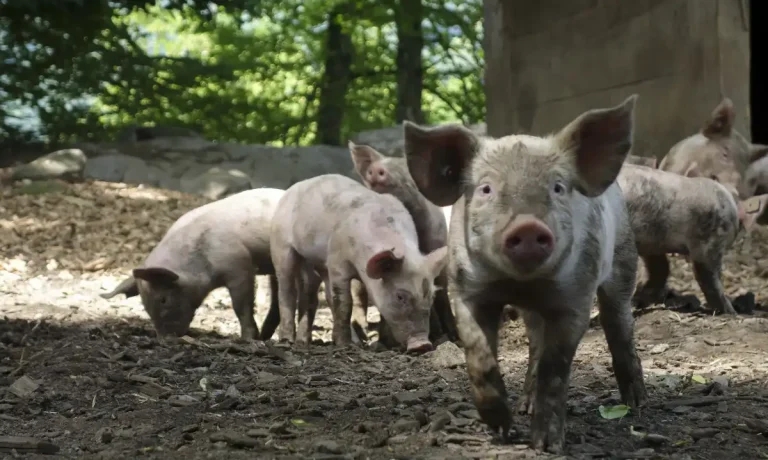24 Sept 2025
Scientists claim their findings in pigs could eventually benefit all species, including humans.

A new study has found a needle-free solid dose vaccine can protect pigs from a common disease in the first case of its kind for any species.
Researchers believe their work on porcine reproductive and respiratory syndrome virus (PRRSV) represents significant progress for all species, eventually including humans.
The claim is based on a study of 45 piglets conducted during 2022 and 2023, which has now been published in the Vaccine journal.
It tested a “prime and pull” strategy that combined a solid dose modified live vaccine administered without needles and a nasal boost that used an inactivated vaccine.
Although the boost did not enhance animals’ immunity, the study concluded the solid dose vaccine offered protection that was “comparable to the standard needle and syringe inoculation”.
The paper concluded that the results supported “further development of the solid dose formulation technology as an alternative to conventional delivery”.
It also argued there were several potential advantages from solid use delivery, including animal welfare benefits through improved carcase quality and reduced risk of disease spread, a lower risk of needle stick injury to staff plus longer storage times.
Simon Graham, The Pirbright Institute’s PRRS immunology group leader and one of the study’s authors, said: “This is the first time a solid dose vaccine has been shown to protect against infection in any species.
“It’s a step forward, not just for pig health, but for vaccine delivery technology more broadly – including for potential future use in humans.”
Researchers from the Moredun Research Institute, the Roslin Institute, the SRUC, APHA and the Iowa State University also worked on the project alongside scientists from Zoetis and aVaxziPen, an Oxfordshire-based company that has developed a “Pig Pen” device which enables solid dose vaccines to be used more extensively.
Robin Cohen, aVaxziPen’s chief executive, said: “Solid dose vaccines offer the potential to transform vaccine delivery, improve animal welfare and eliminate needle related risks for staff.
“This study builds on our extensive data set across a range of human vaccine candidates and demonstrates the broad applicability of the technology in the one health space.
“We are delighted that this study clearly demonstrates that the benefits of alternative vaccine delivery models offers robust immune protection against such an important pathogen.”
PRRSV is thought to be one of the most financially costly to the pig farming industry, with annual losses in the US alone estimated to be more than US$660 million.